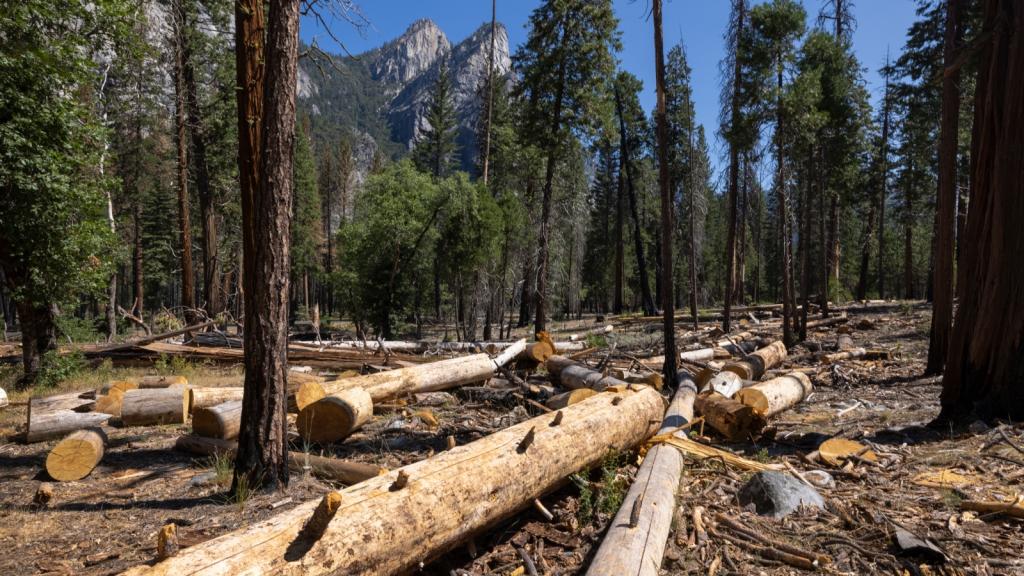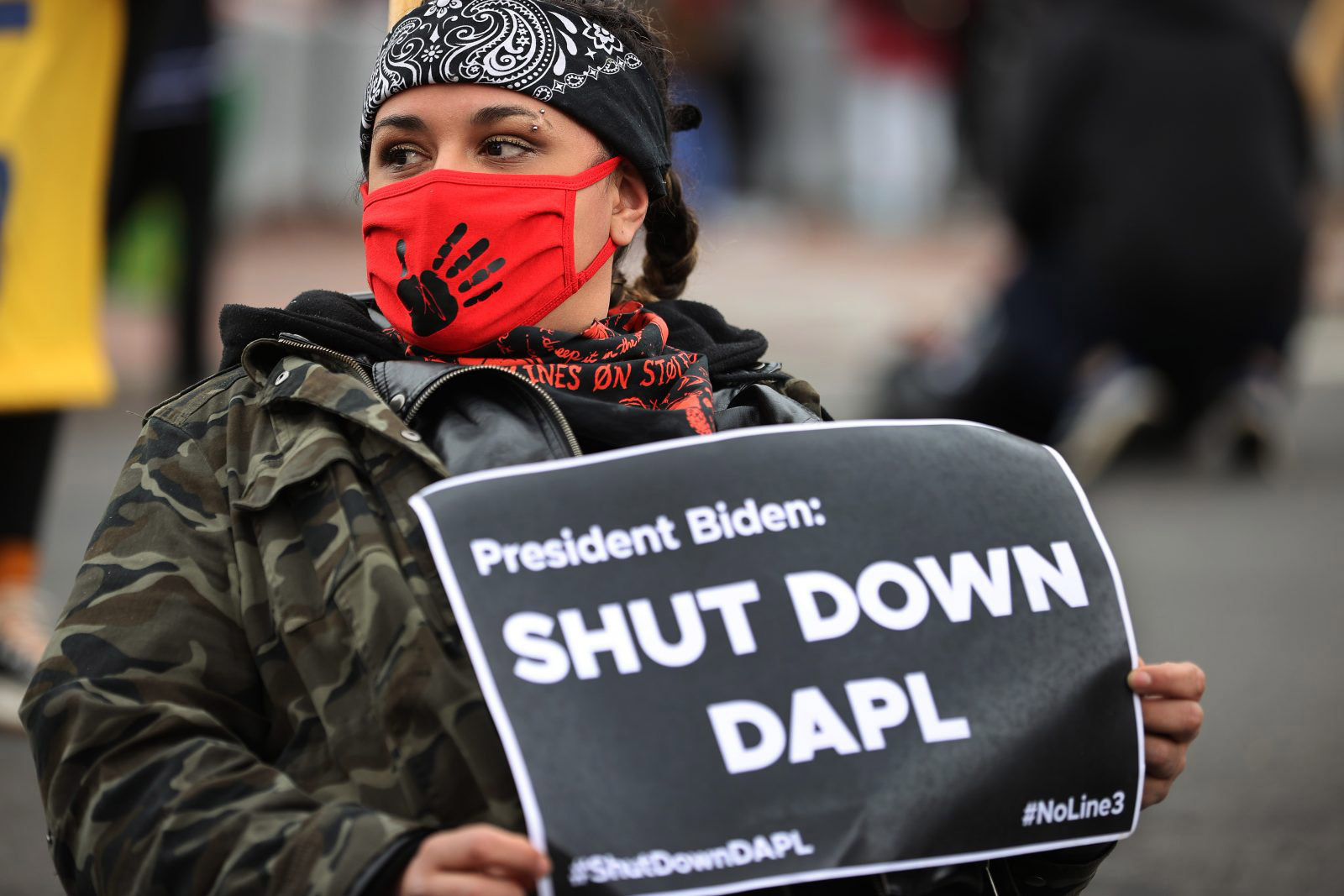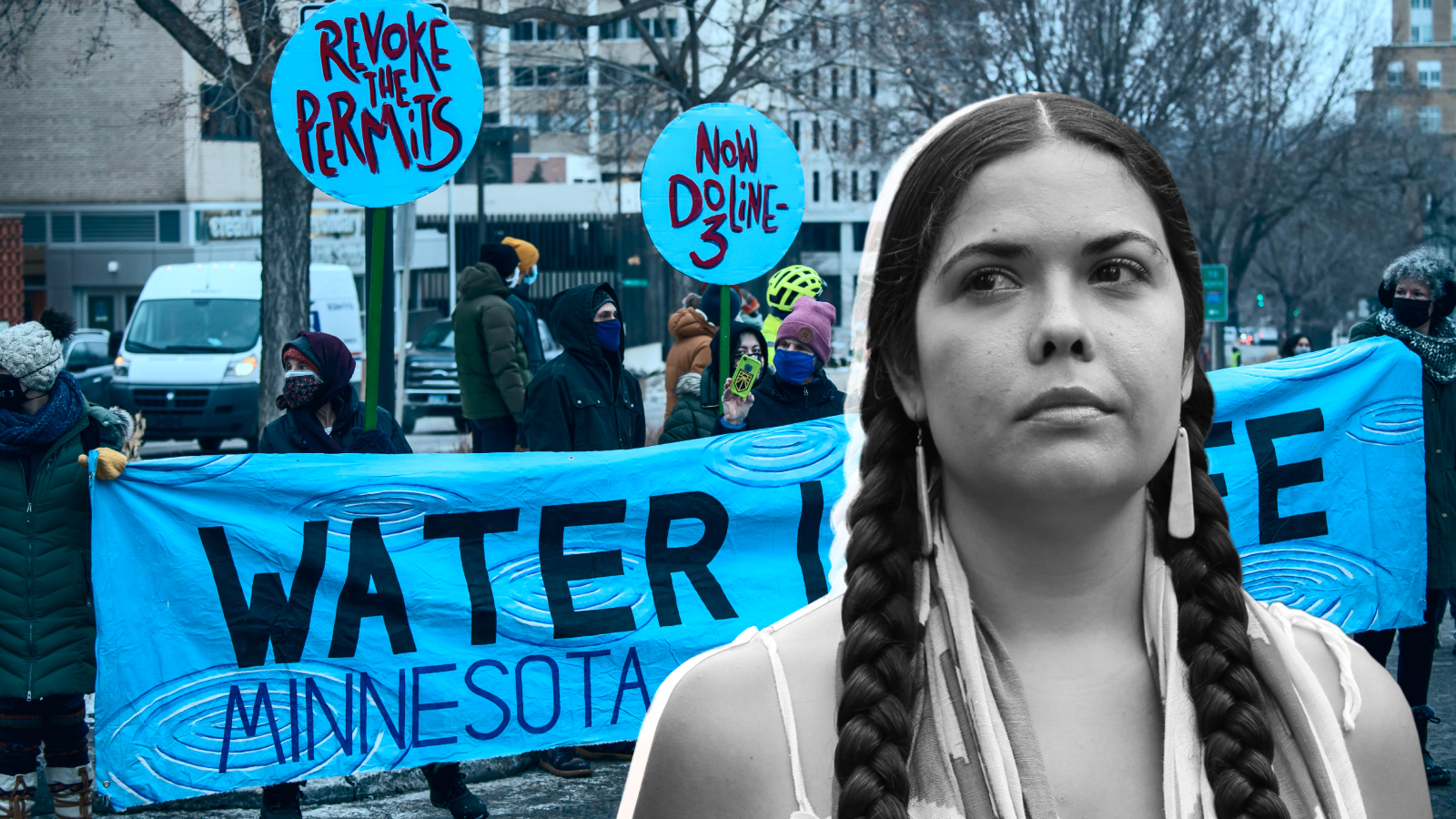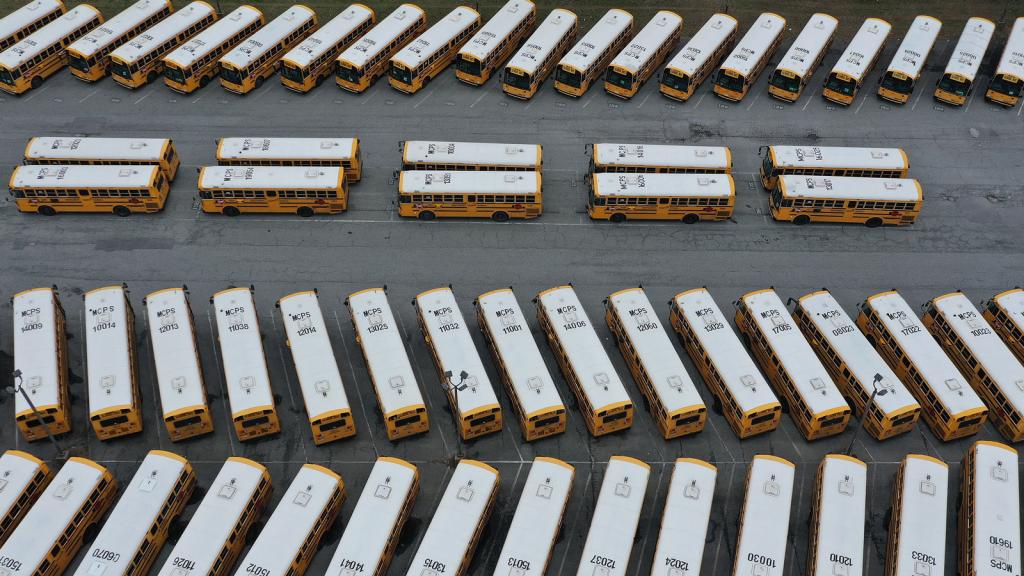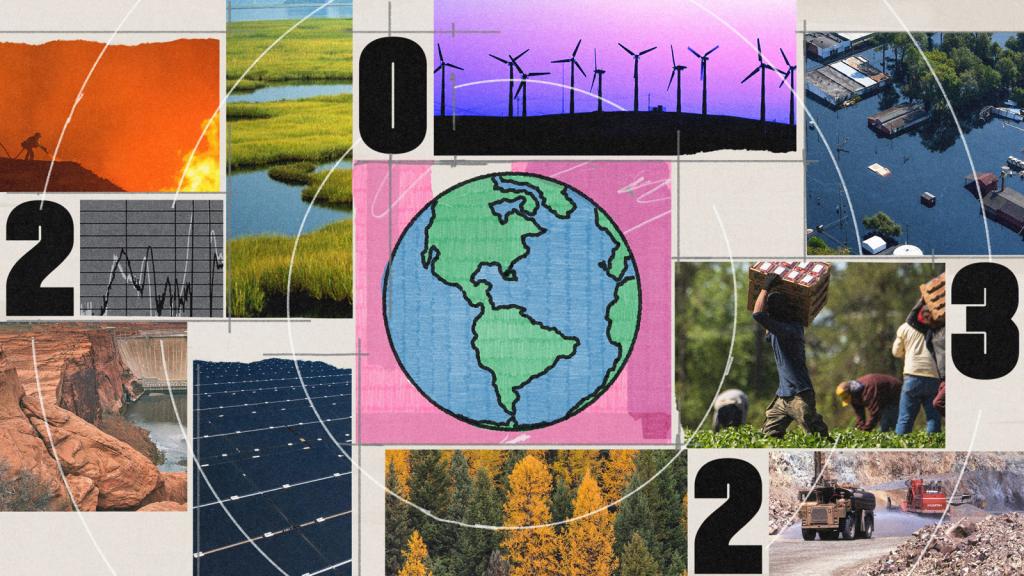Kandi White is the Native energy and climate campaign coordinator at the Indigenous Environmental Network and a 2016 Grist 50 honoree. Katherine Todrys is a human rights lawyer and the author of Black Snake: Standing Rock, the Dakota Access Pipeline, and Environmental Justice.
In June, TC Energy, the company that sought to build the Keystone XL pipeline, announced it would terminate the project. The news followed a decade-long fight by Indigenous activists, ranchers, and environmentalists, as well as President Biden’s decision in January to rescind the cross-border permit granted by the Trump administration.
Activists celebrated the death of Keystone XL, which would have carried crude oil from the Canadian tar sands in Alberta to Nebraska, but 2.6 million miles of oil and gas pipelines still run across the U.S., under plains and forests, through lakes and rivers. In June, the Dakota Access Pipeline marked the dubious milestone of having been in service for four years. It moves 570,000 barrels of oil daily from the Bakken oil fields in the northern plains — around 40 percent of the deposit’s oil output. Energy Transfer, which built the pipeline, is expanding the DAPL to double its capacity. It should be halted immediately.
Pipelines leak — maybe sooner, maybe later. Already in 2021, North Dakota’s oil and gas industry has reported nearly 500 spills. The Keystone pipeline system (Keystone XL would have been an addition) spilled a total of 800,000 gallons in two major incidents in 2017 and 2019. In its first six months of operation, the Dakota Access Pipeline leaked five times.
On July 22, the federal Pipeline and Hazardous Materials Safety Administration fined Energy Transfer a preliminary penalty of $93,200 and issued the company notice of myriad probable pipeline safety violations related to the DAPL’s operation, including neglecting safety repairs on the pipeline’s release valves and failing to properly analyze the impact of an oil spill on densely populated areas. A Reuters analysis concluded in 2016 that Sunoco, which operates the pipeline, had recorded more spills since 2010 than any of its competitors. Since 2012, pipelines operated by its parent company, Energy Transfer Partners, have been responsible for 349 spills, leaks, or other accidents, with 35 of those causing water contamination.
The DAPL has been operating without a permit since last year, when a federal judge revoked the document authorizing the pipeline’s crossing under Lake Oahe — a section of the Missouri River upstream from the Standing Rock Reservation. The ruling followed years of litigation: In 2016, the Standing Rock Sioux Tribe, represented by Earthjustice, filed suit against the U.S. Army Corps of Engineers for violating the National Historic Preservation Act and other laws. Federal courts have ordered a full review of environmental impacts to consider the risks the pipeline poses to the tribe and to evaluate alternate routes, but they’ve declined to shut down the pipeline pending that review.
In May, the federal judge who ordered the environmental review, which is expected to be completed by September 2022, expressed surprise that the Army Corps is allowing oil to flow through the pipeline and cross a crucial waterway without federal authorization.
The reasons to halt the pipeline remain the same as when it was built: First, this is a matter of tribal sovereignty. A spill could desecrate sacred sites; it could also prove devastating for the Standing Rock Sioux Tribe and the 18 million people who rely on the Missouri River for water. The pipeline runs half a mile from the Standing Rock Reservation’s modern boundaries — boundaries the tribe never agreed to, on land that it never ceded. Yet the Standing Rock Sioux Tribe and other affected Native nations were never meaningfully consulted on its construction.
Second, it is a matter of environmental justice. Initially, Energy Transfer proposed a route that would pass north of Bismarck, the capital of North Dakota and a city with a population that is 92 percent white. The Army Corps rejected that route in part because of the threat to Bismarck’s water supply. The Standing Rock Reservation is 78 percent Native American and one of the lowest-income communities in the country. The threat to its water supply should be of equal concern.
Third, the climate crisis compels it. Pipelines are a key element of the infrastructure that locks the United States into a fossil fuel-based economy that generates most of the country’s human-caused greenhouse gas emissions. Methane, a byproduct of fracked oil in the Bakken, is even more potent than carbon dioxide in contributing to global warming, as it is more efficient at trapping radiation; researchers in 2016 found that the Bakken oil fields were leaking 275,000 tons of methane each year.
President Biden made early commitments on each of these issues. He signed a presidential memorandum emphasizing tribal sovereignty and a series of executive orders related to the environment, including one prioritizing an ambitious approach to environmental justice. He rejoined the 2015 Paris Agreement to combat climate change and set reduced greenhouse-emissions targets. Halting the DAPL would prove that these commitments are real.
Meanwhile, pipeline battles continue. Tens of thousands of miles of new pipelines have been built in the last decade, carrying oil and gas from the oil fields of North Dakota, Texas, and Appalachia. Indigenous leaders and allies are currently camped in Northern Minnesota protesting construction of Enbridge’s Line 3 pipeline.
LaDonna Brave Bull Allard founded Sacred Stone Camp at Standing Rock in 2016 and helped it grow from a small group of tipis in the slushy ground to a gathering of thousands — and a movement. She passed away on April 10. Allard knew that the fight over the DAPL would continue as long as oil flowed through it. “It is my home,” she declared. “I will not back down. And when I am gone, my daughter will be standing there, and my granddaughter, and all the generations after.”
The views expressed here reflect those of the authors.
Fix is committed to publishing a diversity of voices, and we want to hear from you. Got a bold idea, fresh perspective, or insightful news analysis? Send a draft, along with a note about who you are, to fix@grist.org.
